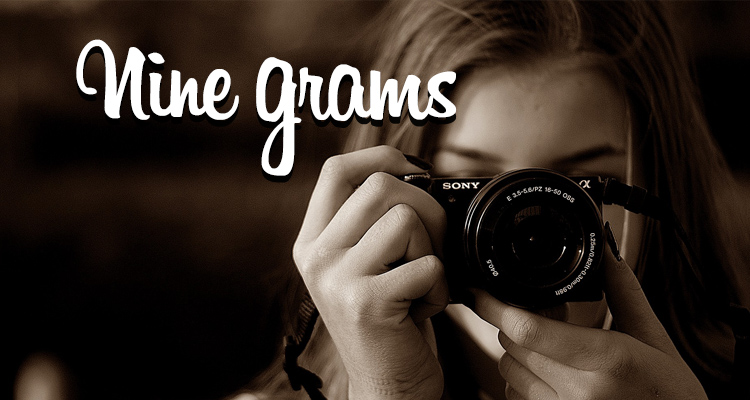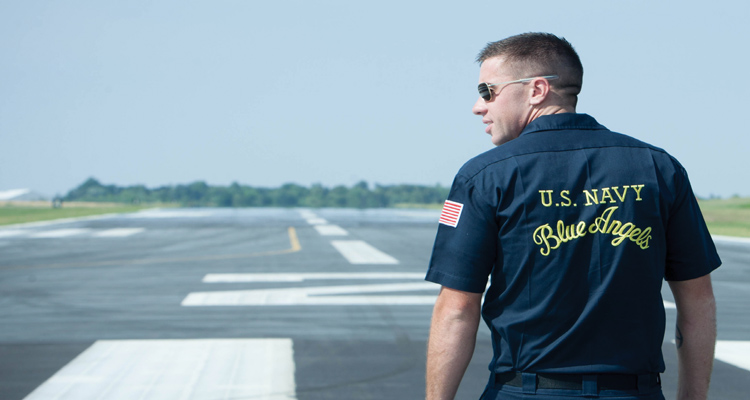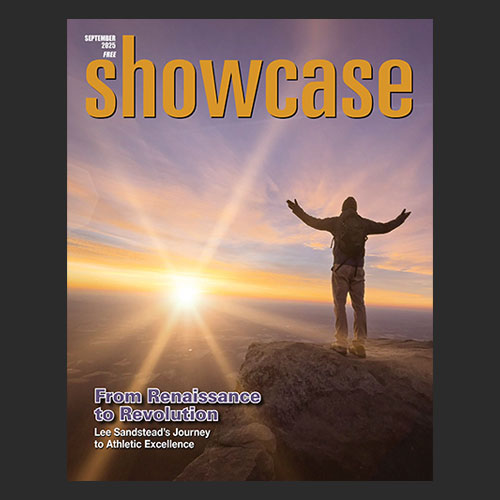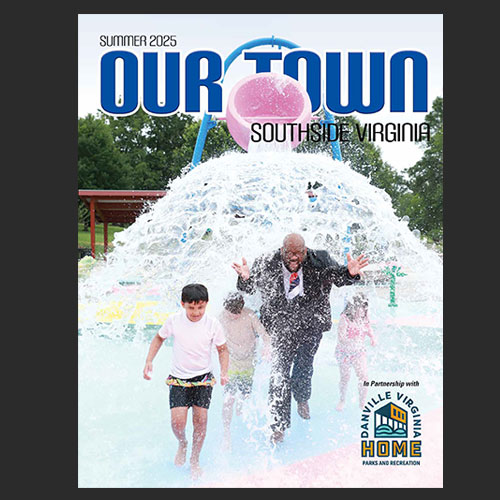Institutionalized Delinquency
In the days before tribute bands, a group of high school friends from Danville formed a group that borrowed everything — including their name — from their idols, the Rolling Stones. And while the local band would continue to emulate the English rockers, they quickly developed a style that incorporated the best of British blues, funky Southern soul, and West Coast psychedelia.
The nucleus of the Stones Unturned — Jim Ray (vocals); Pete Hilliard (bass); and Doug Starnes (guitar) — formed in 1965 to play for a Junior Variety Show at George Washington High School in Danville.
Needing a drummer, Rick Blair was recruited, along with rhythm guitarist John Douglas. Douglas was a junior at GW and was the lead guitarist for the recently disbanded Kondors, so he was anxious to play again.
The group learned three Rolling Stones songs and Douglas recalls they “blew the roof off the place and the people just went nuts.” J. Ray, all 115 pounds of him, was a consummate showman and had the audience in his pocket. Douglas and Starnes alternated playing lead as they ripped through “Not Fade Away,” “The Last Time,” and “Satisfaction.” Ray spray painted a parade drum from the GW marching band, mounted it on a stand, and joined the drummer on “Not Fade Away.” After the show, Ray was mobbed by classmates who told him the group was great, adding: “You guys can mouth those records super.” After convincing them that the band was actually playing, they were immediately hired to play 3 parties. The only problem — the group only knew 3 songs. They went to work and quickly learned about 25 tunes off the Top 40 charts.
Blair’s mother wouldn’t let him play in a rock band and Douglas was more interested in soul music and his girlfriend, so Curtis Vaughan was brought in on drums and Truxton Fulton was added on organ.
Ray explains that the band played everything in their repertoire during the first set of those early gigs and repeated the same songs after intermission. He handled vocals on the rockers, while Hilliard sang lead on the ballads and soul numbers.
Rehearsals were held at the Starnes’ home on South Woodberry. Sheet music for anything but standards was non-existent, so the group bought 45s and Starnes “would sit down and figure out the chords and Pete and Jimmy Ray would figure out the words.” None of the members had any formal musical training but Starnes “could sit down and pick out a song in less than 5 minutes,” so he was placed in charge teaching the band the arrangements. He says the idea was to “imitate (the 45) as closely as we could.”
The Stones played gigs in Virginia and North Carolina, eventually venturing as far south as Asheville and the Carolina coast. Unable to find a regular venue to showcase their talents, the band became adept at self-promotion, renting space at the Hotel Danville for performances. Friends were recruited to collect the small admission fee at the door. Just by word of mouth and a few homemade fliers, they were able to pack the auditorium.
An early demo tape was recorded in 1966 at the WBTM studios in Danville, where Hilliard worked weekends as a disc jockey. The group delivers note-for-note covers of several Rolling Stones songs, along with “96 Tears.” Hilliard produced the sessions, which were recorded with one mic on a single-track, Ampex reel-to-reel.
Fulton, an intern at WBTM at the time, recalls that the recording session was in lieu of payment for a commercial the band had recorded for Jet Wash, a new car wash that had opened in nearby Martinsville. The owner wanted a jingle sung to the tune of the Batman television theme, with the group singing “Jet Wash” instead of “Batman.”
Al Newman had recently opened a high-end clothing store and his son loved the band. Before a performance at the Danville Coke Plant, the group was approached by the haberdasher’s son, Mark, who had talked his father into outfitting the Stones for free, provided they put up a sign advertising his store and boasting that “The Stones Unturned are outfitted by A. Newman Ltd.” The guys agreed and showed up unannounced, bypassing the three-piece suits in favor of houndstooth jackets and corduroy pants. Nothing matched and the horrified shopkeeper never repeated the offer.
Fulton recalls getting a last-minute call from Starnes during the height of a snowstorm. The Danville Golf Club had booked a “professional” band out of Greensboro, but the group canceled due to the weather. The Stones had the gig, provided they could get there. Fulton hailed a taxi while other members got there in a four-wheel drive. They arrived to find Vaughan waiting on the dance floor with a date. After a hasty explanation, he joined his mates on the bandstand.
The Stones played the Sand Fiddler Club in Yaupon Beach for a week in the summer. Vaughan recalls consuming “lots of beer” and wearing lampshades during the beach trip, describing the experience as “a kind of institutionalized delinquency.”
Vaughan and Fulton showed up at the Sand Fiddler for one of the performances and waited anxiously for the arrival of the other three. Fulton explains that “the time came and went for us to play and no Pete, or Jimmy or Doug and we were getting concerned and just a little miffed.” They showed up late, explaining that Hilliard’s car had gotten stuck on the beach as the tide was coming in and was nearly swept away.
Hilliard had convinced his dad to loan him his new ’66 Dodge Coronet to haul their gear to the beach. He said the three decided one afternoon to ride along the beach, explaining that “I guess we thought we were at Daytona and I took the Coronet onto the beach and immediately got stuck.” They were there about a half-hour when they flagged down a Jeep and asked the driver for a tow. He refused, explaining that the vehicle was new and he didn’t want to scratch the paint. With the tide lapping at the doors of the Dodge, the band members reluctantly called a tow truck, which wiped out any profit from the week’s engagement, since they were playing for a portion of the gate.
A show at Virginia Intermont College in Bristol almost didn’t happen. Administrators should have known they were in for trouble when a shoeless Ray made a grand entrance to the formal ball, walking across tables to the stage. Vaughan wore his “Strawberry Alarm Clock shirt,” with Neru collar and reflective flowers that would blind the audience during the light show. At the break, one undergraduate in a suit approached Vaughan and remarked: “Wow, you guys are crazy!”
Another road trip took the band to the Albermarle Beach Casino in Plymouth, N.C. The building was on stilts above the Albermarle Sound and band members went up the back steps to reach the stage, only to find it surrounded by chicken wire. Ray says the clientele expected a country band and the Stones were pelted with beer bottles until they broke into “Rawhide” and “Big Boss Man.”
In the summer of 1967, the band morphed into the Purple Haze Publication and Light Show. The name was chosen over the objections of Fulton, who wanted to rename the band Radio Super Ice Cream Parlor. Members built light columns and a huge purple strobe light that was pointed toward the audience. Ray, who would go on to become an electrical engineer, wired it all to a foot pedal he could control from the stage. The band covered Hendrix, Cream, and the Vanilla Fudge.
The group was excited about the chance to play with one of their idols, Jerry Lee Lewis, even though the venue was the Skylark Club, a beer joint on Rt. 86 that was notorious for rowdy drunks, shootings, and stabbings. While the group had no problems, Ray recalls that Lewis arrived late, “so we played a little longer than expected.”
Starnes was dating vocalist Flo Penn and it wasn’t long before she was added to the line-up, allowing the band to cover the Jefferson Airplane. Penn was already a veteran of the music scene and had recorded (as Little Lambie Penn) for two labels, including Atco where label mate Bobby Darin wrote and produced a novelty song (“I Wanna Spend Christmas with Elvis”) for his young protégé in 1956.
During this period, the band entered the House of Sound Studios on Piney Forest Road in Danville and recorded covers of the Nashville Teens’ hit “Tobacco Road,” and Bobby Hebb’s “Sunny.” Hilliard sings lead on both and “Tobacco Road” features a blistering instrumental break that rivals the original in intensity. The Stones seemed equally at ease covering the MOR ballad, which at the time was a dance band standard.
A session tape survives, complete with the band’s banter between tracks. The recordings are some of the best to come out of the studio, but for some reason were never committed to vinyl. Ray says both songs were later submitted to CBS Records, along with the band’s slower version of the Temptations “Get Ready.”
Hilliard insists the band recorded several others songs that day and says nothing came of the tapes because “we looked at them as cover material” and “we didn’t have money to take them any further.” Everything was recorded in a single take with no overdubs. He attributes a bad note on “Sunny” to the fact that he “was singing and playing at the same time.”
Starnes recalls that the studio was booked so the Stones could back Flo on a demo tape for her agent in New York City, where she performed that summer. The group made quick work of her vocal numbers and — with studio time remaining — convinced producer Frank Koger to keep the tape rolling and record the band. The results were impressive and Starnes calls the recordings “one of the biggest turning points for the Stones Unturned.”
Flo was never an official member of the group. Starnes notes that she sang with the Artie Tompkins Dance Band, and “if they weren’t playing on weekends and we were, she would come and sing with us. She would do a lot of the Jefferson Airplane and other groups. It gave us a real full, more professional sound.”
The group opened for Joe Tex at the WDVA Barn Dance at the Danville Fairgrounds on Thanksgiving Day. Ray remembers the day well because the family was seated for the annual feast when he grabbed a turkey leg, informed his mom that the group was playing and ran from the house. This was an important performance and the band planned to go all out with their stage show, with an 8mm projector showing “Varan the Unbelievable” on a screen at the rear of the stage. Ray also rigged an overhead projector with a clear glass beaker containing oil and water, with food coloring dropped in as the stage floor vibrated, creating a montage of colors over the giant Japanese monster.
When the emcee announced the group, the curtains parted and the band launched into “Purple Haze” before realizing they were playing to an all black audience. Once they made it through the first number, Ray turned to Hilliard and told him to forget the song list and play “Funky Broadway.” When they got to the middle break, the pair brought the house down when Ray called Hilliard to center stage to teach the audience the new dance. The crowd rushed forward and dozens joined Hilliard on stage.
Hilliard decided to leave the group shortly thereafter, but not before a final show at the Danville City Armory in support of the Soulmasters and Minit recording artists the Showmen. Hilliard had already informed the band that as they were performing their last song, he planned to smash his guitar. He borrowed a Fender bass from the Soulmasters’ Ernie Dickens for their set, but switched to his cheaper knock-off when the band hit the first chords of “Tobacco Road.” When they reached the instrumental break, Hilliard walked to the center of the stage, jumped high into the air and landed on his knees. He fell backwards and continued playing. Starnes saw the crowd response and slammed into his amp, ending on the floor atop his equipment. Ray got so carried away that he jammed his mic into the P.A. column, piercing the grill cloth and a speaker cone. Vaughan kicked his cymbals onto the stage as Hilliard raised his bass above his head and smashed it into three pieces on the stage. The band quit playing and the curtains closed as a cacophony of noise and feedback filled the auditorium and the crowd erupted in cheers.
The audience kept calling for an encore and the curtains parted with Hilliard holding shards of his guitar. He threw the remnants into the audience and exited stage right as the crowd fought over the pieces. Backstage, the Showmen were watching in the wings in stunned silence and were reluctant to follow an unknown act that had just brought the house down. One of singers approached Hilliard and said, “Man, ya’ll were really smoking tonight.” When Pete thanked him for the complement, he replied: “No, I mean your amplifier is on fire.” Unbeknownst to Hilliard, the bass amp had shorted out during the melee and was ablaze. While he had trashed the equipment, Starnes said, “It sure did make a good closing.”
With Hilliard’s departure, the group brought in rhythm guitarist/vocalist Joe Mitchell and bassist Jay Barker. The two lived in an apartment above an old movie theater that had no lighting, save for some neon signs. The two left town — and the band — in a matter of months.
Another beach trip included an audition at the famed Pavilion in Myrtle Beach, S.C. By that time the group was playing strictly psychedelic music and the club’s owner explained that his soul audience had no interest in fuzz guitar and feedback. Carolyn Garrett accompanied her cousin Flo to take care of Penn’s young daughter and remembers that the Pavilion’s owner “loved the singer but hated the band,” offering Flo the chance to sing without the group.
One of Purple Haze’s last gigs was for a boy’s prep school is Asheville, N.C. The students were dressed for the occasion and had their dates with them. Starnes remembers that their usual set of Cream and Hendrix covers was well received. “They kinda got into that music; they liked Flo a whole lot. Oh course everybody liked Flo because she had such a good voice. She could sing just about anything. That was about a far away as we ever went… and we knew we were getting close to the end.”
The band had signed with Bowmar in Atlanta, a booking agency that also handled Otis Redding and Carla Thomas. CBS expressed an interest and a test pressing of the band’s version of “Get Ready” was made.
Plans for additional recordings were shelved when PHP&LS split in the summer of 1969. The break-up was amicable as most were leaving to attend college.
Fulton was the first to leave and went on to play with a Farmville soul group, Sammy Hawks and the Satisfactions, who recorded two 45s, including a cover of “Day Tripper.” During his senior year at GW, Fulton formed the American Band and performed his own compositions. The band cut some demos in Greensboro before Fulton moved to Richmond to attend Virginia Commonwealth University. The demo got the group a gig with Bruce Springsteen’s band, Steel Mill. Larry Powers and John Coppinger saw that show and recruited Fulton into their newly formed group, Play Innocent, followed by a stint with a “working band” called Matrix. Fulton abandoned the idea of music as a career in the 70s and moved to Alabama, where he worked for years as an engineer with Boeing, specializing in missile defense. Since retiring, he has reconnected with some of his former bandmates from Play Innocent and the band recorded a music video (“Monster Movie”) in Florida. Fulton also records original material as Karl Mahlmann.
Hilliard studied electrical engineering at Virginia Tech before moving to D.C., where he worked in radio before joining the Army. He spent three years with the American Forces Radio Network in Germany, interviewing many of his idols, including Mick Jagger, Bill Wyman, Steve Miller, Ian Anderson, Edwin Starr and Godley and Crème. After the service, he moved to Florida and “starved, worked in sunshine” before receiving an offer to return to Germany to work in television with the AFN. Today he lives in Massachusetts and is the owner of Hilliard Creative Group, a digital media production company. He returned to the guitar in 1998 and married a music teacher and keyboardist in 2004. He currently performs for friends and in church.
Ray left the band just before the split, went to Blacksburg and majored in electrical engineering at Virginia Tech. He went into business for himself and continues to work as a consulting engineer, specializing in automation systems. He still lives in Danville but has not performed since 1969.
Vaughan was a year younger than the rest and remained with the group until the end. He was so committed to the band that he skipped his high school graduation to play a road gig. After finishing college, Vaughan was drafted and spent two years in the Army. He moved to California, earned a doctorate in Psychology at Berkeley and taught in Tokyo before returning to the West Coast, where he taught briefly before working for 30 years in the Bay area as an Applied Psychologist in Adolescent Child Development. He continues with his day job and also travels with his wife, who is a performer of Japanese classical music.
Starnes attended Virginia Tech, married Penn and the couple moved to Greensboro, N.C. Starnes left the music business and worked as a traveling salesman for a company that sold sportswear and lingerie. Flo continued to perform, singing in Las Vegas and on countless of radio jingles. She also released a growling version of Timi Yuro’s “What’s A Matter Baby” that went nowhere. The couple eventually moved to Salisbury, N.C. before splitting. She remarried and performs Christian music. Starnes lived in Danville in the same house where the Stones spent hours practicing until just prior to his death in 2013. He gave up playing but said he always regretted selling his five guitars.
While it’s been more than 40 years since the band played its last note, Vaughan says they built a bond that continues, because “we were able to communicate totally through our music.” Ray says the members concluded “there was a lot more to be had by going to school than playing rock and roll,” but has always wondered what might have happened had the band stayed together. Fulton has no regrets about leaving the business but has enjoyed returning to music now that he doesn’t have to depend on it “as a source of income.” Hilliard says their “brief moment of fame” was fun but insists the band never seriously entertained the idea of trying to make a living at it. Starnes sums it up by saying he “wouldn’t trade a single day or do anything any different,” adding: “We made a little money off of it… and that was all we were interested in, making some money and turning the girls’ heads.”









